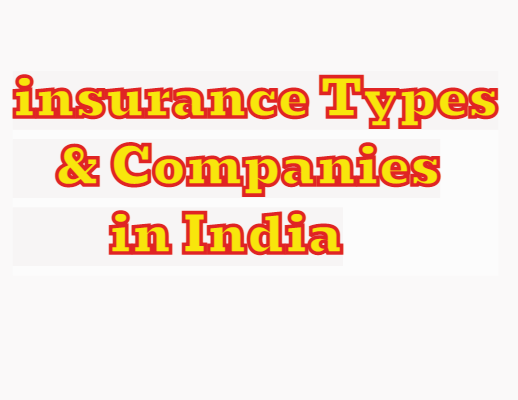Introduction
- Definition of Insurance
- Brief history of insurance in India
Types of Insurance in India
- Life Insurance
- Health Insurance
- Motor Insurance
- Travel Insurance
- Property Insurance
- Crop Insurance
Regulatory Framework
- IRDAI (Insurance Regulatory and Development Authority of India)
- Role of IRDAI in regulating the insurance industry
Major Insurance Players in India
- LIC (Life Insurance Corporation of India)
- Private insurance companies
- Comparison between LIC and private insurance companies
Challenges Faced by the Insurance Industry in India
- Lack of awareness among people
- High premium rates
- Fraudulent practices
- Lack of proper distribution channels
Government Initiatives to Promote Insurance
- Pradhan Mantri Suraksha Bima Yojana
- Pradhan Mantri Jeevan Jyoti Bima Yojana
- Ayushman Bharat Yojana
Conclusion
- The future of insurance in India
- The importance of insurance for individuals and the economy
Insurance in India: An Overview
Insurance is a form of risk management that provides financial protection against unexpected events. It is a contract between the insurer and the insured, where the insurer agrees to pay a sum of money in exchange for a premium, in case of any losses or damages incurred by the insured. Insurance has become an integral part of our lives, be it for health, life, property, or vehicle.
The concept of insurance can be traced back to ancient civilizations, where traders used to pool their resources to protect themselves against the loss of goods during transportation. The modern-day insurance industry, however, began in the 17th century with the formation of the first insurance company in England. The concept soon spread to other countries, including India.
Types of Insurance in India
In India, there are various types of insurance policies available, catering to the different needs of individuals. Some of the most common types of insurance policies in India are:
- Life Insurance: Life insurance policies provide financial protection to the family of the insured in case of the unfortunate death of the policyholder.
- Health Insurance: Health insurance policies provide coverage against medical expenses incurred by the policyholder due to illness or accidents.
- Motor Insurance: Motor insurance policies provide coverage against damages or losses incurred by the insured vehicle due to accidents, theft, or natural calamities.
- Travel Insurance: Travel insurance policies provide coverage against unexpected events that may occur during a trip, such as flight cancellations, loss of baggage, or medical emergencies.
- Property Insurance: Property insurance policies provide coverage against damages or losses incurred by the insured property due to natural calamities or man-made disasters.
- Crop Insurance: Crop insurance policies provide coverage against losses incurred by farmers due to natural calamities or other events that may cause damage to crops.
Regulatory Framework
The insurance industry in India is regulated by the Insurance Regulatory and Development Authority of India (IRDAI), which was established in 1999. The primary objective of the IRDAI is to protect the interests of policyholders and promote the growth of the insurance industry in India. It regulates the functioning of insurance companies, intermediaries, and other stakeholders in the industry.
Major Insurance Players in India
The Life Insurance Corporation of India (LIC) is the largest insurance company in India, established in 1956. It is a government-owned corporation that offers a wide range of insurance products to individuals. In addition to LIC, there are several private insurance companies in India, such as HDFC Life, Max Life, ICICI Prudential, and SBI Life.
Challenges Faced by the Insurance Industry in India
The insurance industry in India faces several challenges that hinder its growth and development. Some of the major challenges are:
- Lack of awareness among people: Many people in India are not aware of the benefits of insurance and the different types of insurance policies available.
- High premium rates: The premium rates of insurance policies in India are relatively high, making it difficult for many people to afford them.
- Fraudulent practices: The insurance industry in India has been plagued by fraudulent practices such as fake policies, false claims, and misrepresentation of facts.
- Lack of proper distribution channels: The distribution of insurance policies in India is mainly through agents, who are often not adequately trained or incentivized to promote insurance.
Government Initiatives to Promote Insurance
The Indian government has launched several initiatives to promote insurance and increase its penetration in the country. Some of the significant initiatives are:
- Pradhan Mantri Suraksha Bima Yojana: This scheme provides life insurance coverage to individuals at a nominal premium of Rs. 12 per annum.
- Pradhan Mantri Jeevan Jyoti Bima Yojana: This scheme provides life insurance coverage of Rs. 2 lakhs to individuals at a nominal premium of Rs. 330 per annum.
- Ayushman Bharat Yojana: This scheme provides health insurance coverage of up to Rs. 5 lakhs per family per year to economically weaker sections of the society.
Choosing the right insurance company is important to ensure that you get the best coverage and services for your insurance needs. In India, there are several insurance companies, both public and private, offering a range of insurance policies. Here are some of the best insurance companies in India, based on their reputation, customer reviews, and market share:
- Life Insurance Corporation of India (LIC): LIC is the largest and most trusted insurance company in India, with a market share of over 70%. It offers a wide range of life insurance policies catering to the needs of individuals, including term insurance, endowment plans, ULIPs, and pension plans.
- HDFC Life: HDFC Life is a leading private life insurance company in India, offering a range of life insurance policies such as term insurance, ULIPs, savings plans, and pension plans. The company has a strong presence in the market and is known for its customer-centric approach.
- Max Life: Max Life is another popular private life insurance company in India, offering a range of life insurance policies, including term insurance, ULIPs, endowment plans, and retirement plans. The company has a high claim settlement ratio and is known for its customer service.
- ICICI Prudential Life: ICICI Prudential Life is a leading private life insurance company in India, offering a range of life insurance policies such as term insurance, ULIPs, endowment plans, and child plans. The company has a strong distribution network and is known for its innovative products.
- SBI Life: SBI Life is a joint venture between the State Bank of India and BNP Paribas Cardif, offering a range of life insurance policies such as term insurance, ULIPs, endowment plans, and retirement plans. The company has a high claim settlement ratio and is known for its customer-centric approach.
- New India Assurance: New India Assurance is a leading public sector non-life insurance company in India, offering a range of insurance policies such as motor insurance, health insurance, travel insurance, and property insurance. The company has a strong presence in the market and is known for its efficient claim settlement process.
- Bajaj Allianz: Bajaj Allianz is a popular private non-life insurance company in India, offering a range of insurance policies such as motor insurance, health insurance, travel insurance, and property insurance. The company has a high claim settlement ratio and is known for its customer service.
In conclusion, while choosing an insurance company, it is important to consider factors such as the company’s reputation, customer reviews, claim settlement ratio, and product offerings. It is advisable to compare the policies and services offered by different companies and choose the one that best meets your insurance needs.
cons and pros
Pros:
- Protection: Insurance companies provide financial protection against unforeseen events, such as accidents, illnesses, and natural disasters. This protection can give peace of mind to individuals and families, knowing that they are covered in case of an emergency.
- Savings: Some insurance policies, such as endowment plans and ULIPs, offer a savings component that can help individuals build their savings over time. These policies can help individuals meet their long-term financial goals, such as retirement planning or saving for their children’s education.
- Tax Benefits: Insurance policies offer tax benefits under section 80C of the Income Tax Act, 1961. The premiums paid towards insurance policies are eligible for tax deductions, up to a certain limit.
- Customer Service: Good insurance companies offer efficient and prompt customer service, helping customers with their queries and claims. This can be a major advantage, especially during times of crisis.
Cons:
- Premiums: Insurance policies require individuals to pay premiums regularly, which can be a financial burden for some people. The premiums may also increase over time, depending on the policy’s terms and conditions.
- Exclusions: Insurance policies come with certain exclusions, which means that the policy may not cover certain events or situations. Individuals need to understand the policy’s terms and conditions and exclusions before choosing a policy.
- Claim Settlement: Insurance companies may reject claims if the policyholder does not fulfill the policy’s terms and conditions. This can be frustrating for individuals, especially during times of crisis.
- Complex Terms and Conditions: Insurance policies can be complex, with several terms and conditions that may be difficult for individuals to understand. This can lead to confusion and misunderstandings, which may affect the policyholder’s benefits.
In conclusion, insurance companies offer several advantages, such as protection, savings, tax benefits, and customer service. However, it is important to consider the premiums, exclusions, claim settlement, and complex terms and conditions while choosing an insurance policy. It is advisable to compare policies and choose the one that best meets your insurance needs.



